Rachel Johnston: Neglect contributed to woman's teeth removal death
- Published
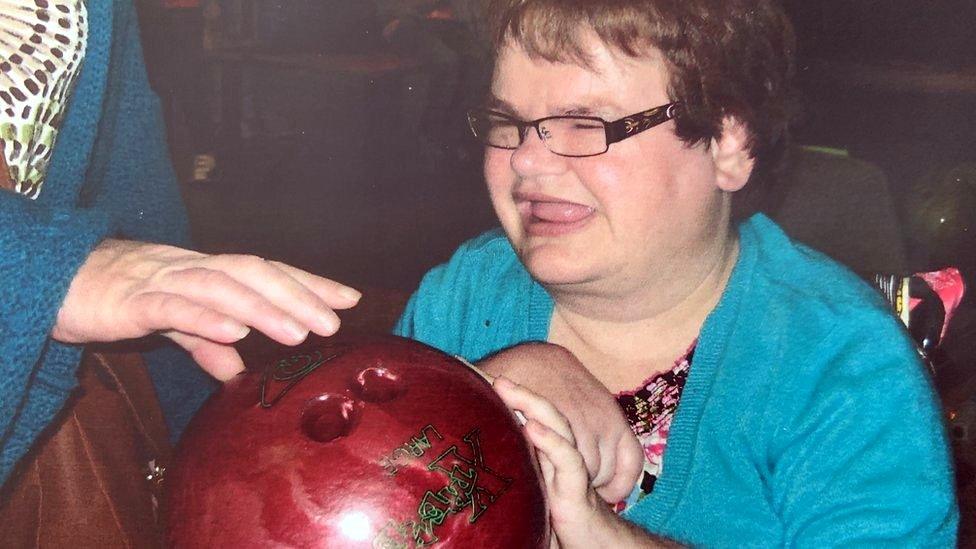
Rachel Johnston died just over two weeks after the operation after suffering complications
A disabled woman whose brain was starved of oxygen after an operation to remove all her teeth would probably have survived if care home staff acted sooner, an inquest heard.
Staff at Pirton Grange Care Home, near Worcester, failed to spot Rachel Johnston was developing hypoxia.
A coroner concluded neglect contributed to her death just over two weeks after she was taken to hospital.
Miss Johnston's mother Diana said the home had "failed" her daughter.
A statement from Pirton Grange expressed sadness at Rachel's "tragic" death, adding systems had been improved and staff trained following the case.
Miss Johnston, 49, fell ill shortly after being discharged from Kidderminster Hospital where all her teeth had been removed due to severe decay on 26 October 2018.
Basic observations
For the next 42 hours, Miss Johnston bled from her mouth intermittently, was heard "gurgling" and never fully woke up.
Despite this, care home nurses repeatedly failed to recognise she was dangerously ill, did not carry out basic observations or make notes on her condition.
By the time an ambulance was called at 14:00 GMT, two days after Miss Johnston left hospital, her "entire brain had been starved of oxygen", Dr Christopher Danbury told the inquest.
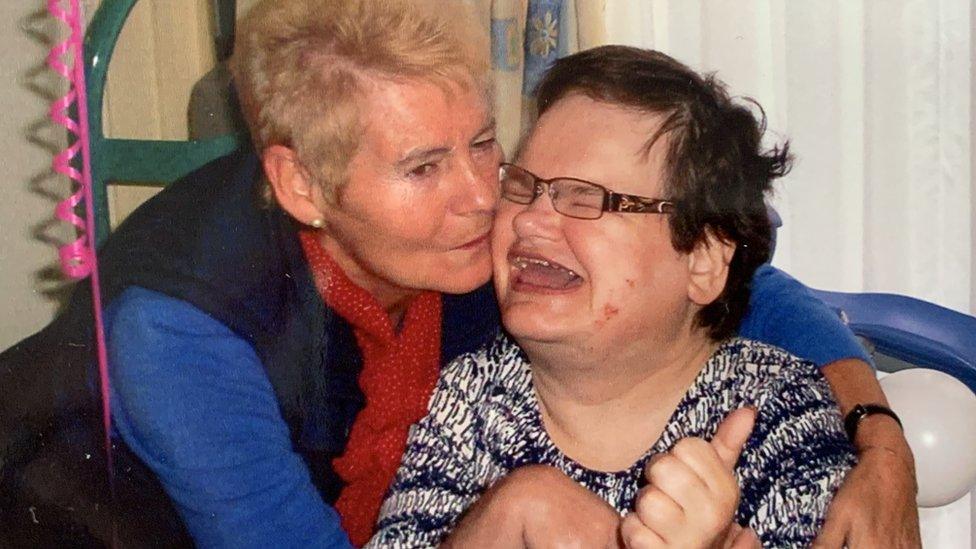
Diana Johnston, Rachel Johnston's mother, said she thought she was leaving her daughter "in safe hands" at the care home
Readings showed her oxygen levels were 63% when a normal reading is 95-100% and she had suffered aspiration pneumonia.
Dr Danbury, who reviewed her care, said Miss Johnston had no chance of survival by the time she was taken to hospital but "probably would have survived" if taken to hospital the previous evening when staff called 111 for advice.
Coroner David Reid said "gross failures" by two care home nurses to record and properly monitor Miss Johnston's condition contributed to her death.
'Gross failures'
"These were basic medical checks that should have been carried out at regular intervals," said Mr Reid, and without them made it "impossible to build a picture" of Miss Johnston's health after surgery.
He said the actions of Sheeba George and Gillian Bennett were "so serious - so total and complete, so patently not simple errors they can only be described as gross failures".
Mr Reid said 111 call handler Alison Trueman failed to ask direct questions when nursing staff called, but recognised she was working in stressful circumstances and had attempted to do what was best.
Miss Johnston, who suffered brain damage as a result of contracting meningitis as a baby, had lived at Pirton Grange since 2013 so she could access medical care.
"When she needed it, they failed her and she died," her mother said.
"What happens time and again to the families of people with learning difficulties is that we get sidelined by medical professionals - even when we clearly know the person involved the best and love them the most," she added.
"That is incredibly difficult to bear and no words can describe the agony of experiencing that."
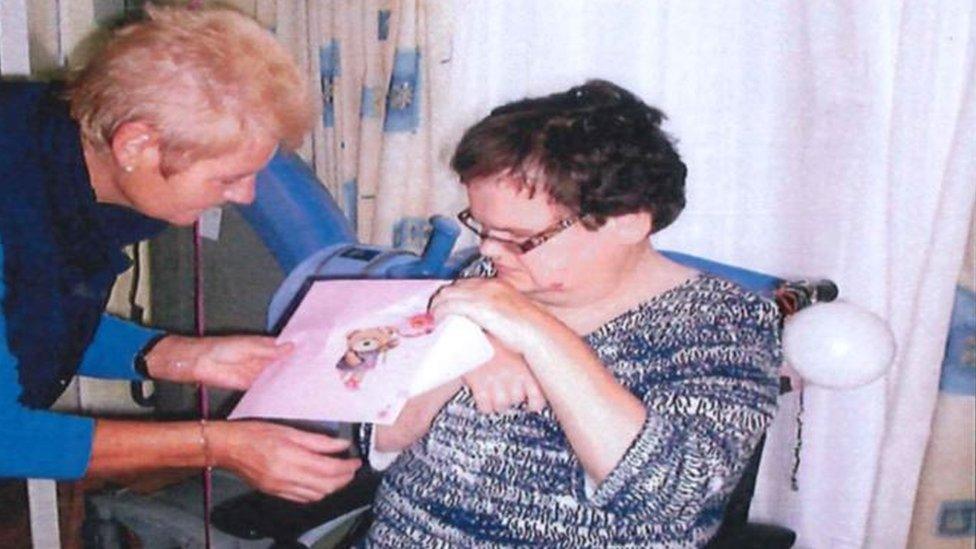
Miss Johnston "brightened up the room" at Pirton Grange and was always singing, an inquest heard
Solicitor Caron Heyes, from Fieldfisher, representing the family, said the inquest had been "extremely gruelling".
"What came out clearly in the evidence is that Rachel would still be here if she'd been cared for properly - she was fit, she was healthy and she was a fighter," she added.
Pirton Grange said it expressed "sincere sympathy and condolences" to Miss Johnston's family and friends.
"The care and wellbeing of our residents are paramount, and Pirton Grange accept the finding of HM Coroner and recognise that there are lessons to be learnt by staff and management, as a result of Rachel's tragic death," a statement said.
"Changes have been made within the organisation to implement improved systems and procedures. In addition, staff training has been undertaken in all the key areas highlighted by this sad case."

Follow BBC West Midlands on Facebook, external, Twitter, external and Instagram, external. Send your story ideas to: newsonline.westmidlands@bbc.co.uk , external
- Published11 February 2021

- Published9 February 2021

- Published8 February 2021

- Published12 August 2019
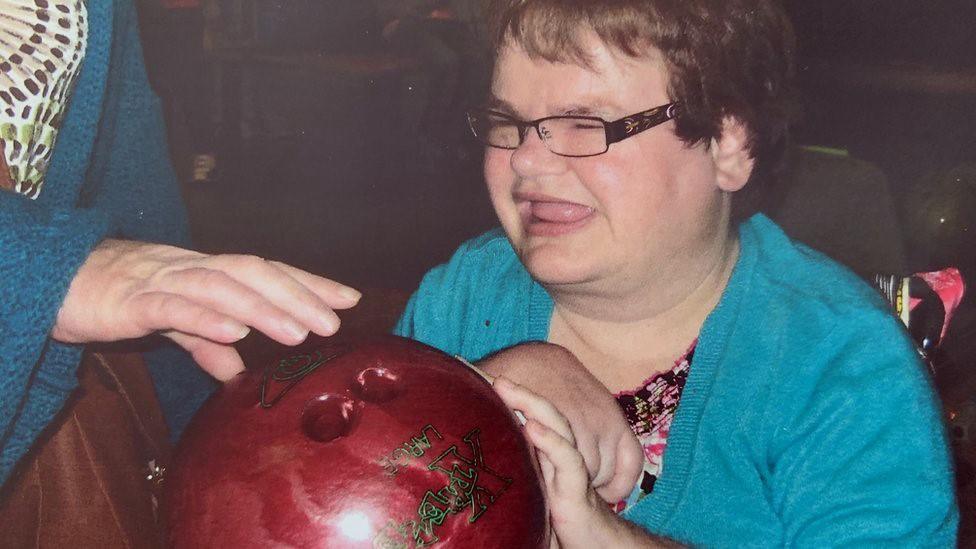
- Published6 January 2019
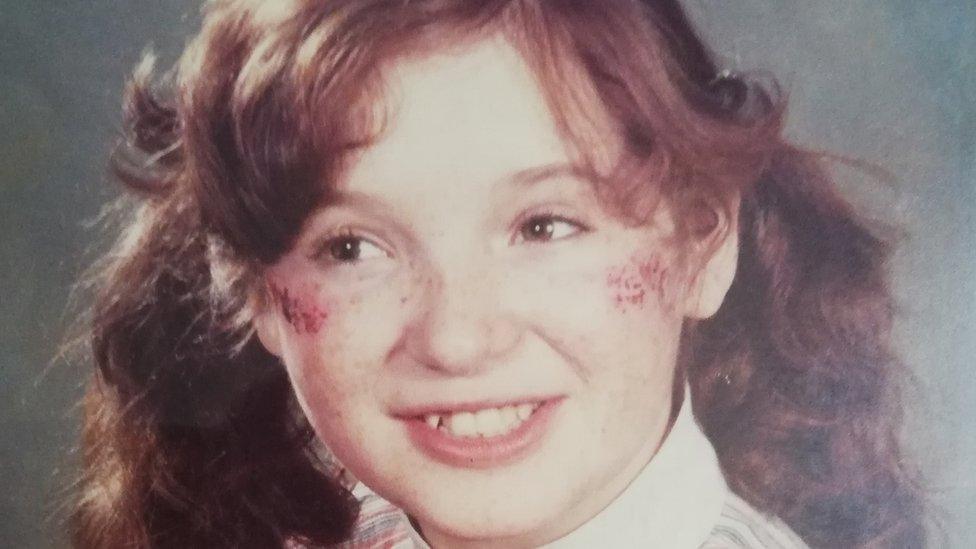
- Published14 December 2018
